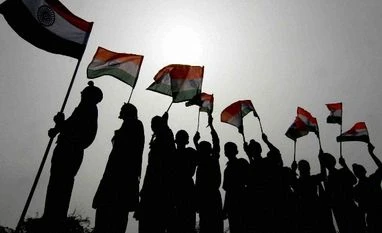When India gained independence from Britain on August 15 1947, the majority of Anglo-Indians had either left or would leave soon after. Many within the Indian Civil Service would write of the trauma that they experienced from witnessing the violence of the years leading up to the end of British rule and the bloodbath that would follow as the lines of partition were revealed.
Colonialism was certainly a far more traumatising experience for colonial subjects than their colonisers. They suffered poverty, malnutrition, disease, cultural upheaval, economic exploitation, political disadvantage, and systematic programmes aimed at creating a sense of social and racial inferiority. While some may argue that any suffering on the part of the British colonialists ought to be met with little sympathy, this is not a reason to obscure it from history.
It was the very notion that Indian civil service servicemen were usurpers, full of privilege, in a foreign land that led to the sapped sense of humanity that many wrestled with – both during and after their India careers.
As my own forthcoming book details, some shut themselves off from the day-to-day lives of Indians, unless forced to engage for work purposes. Others escaped through drowning themselves in alcohol, opium or other drugs. Some convinced themselves of the intellectual superiority of the white man and his right to rule over “lesser races”, while a number found solace in Christianity. Several came to see their role as being a peacekeeper between various ethnic and religious groups, despite the irony of the British having encouraged and exploited the categorisation of colonial subjects on these grounds in the first place.
Underneath all of this sits a trauma that the coloniser had to either deal with – or resign their post and go home.
Serving the Raj
One serviceman of the late Raj who I have focused on in my research is an example of the coping mechanisms that British officials deployed. Andrew Clow entered the Indian Civil Service in 1912 at the age of 22 and would remain a civil servant until 1947 when he reached the mandatory retirement ceiling of 35 years. His most notable portfolios were as secretary of the Indian Labour Bureau in the late 1930s, followed by minister for communications and then governor of Assam from 1942 to 1947.
Clow, and his one thousand or so colleagues at any one time, effectively ruled India during the late Raj. This was a time of declining British prestige, and declining public and political opinion of colonialism as an acceptable social, economic and political practice. The rise of the Indian independence movement with Mohandas Gandhi as its nominal leader, coincided with the anti-British international propaganda concerning its empire that came from the Soviet Union and its sympathisers.
Doubt and self-loathing
In the early 1920s, the Indian independence movement grew in prominence and received a significant level of sympathy at home and abroad. In 1919, the Amritsar Massacre of unarmed protesters by British and Gurka troops received much public criticism. A year later, two of Clow’s civil service intake year group were assassinated in a market in Midnapore, West Bengal. From letters Clow wrote to a friend, we know he considered resigning on several occasions during the early 1920s. This period of reflection led him to fundamentally question his role within the colonial system, but he ultimately decided to continue his career.
Clow was a devout Christian and his life in India would develop into a religious cocoon of sorts where he used his relationship with God to suppress his trauma at being a colonial usurper.
As he became more senior within the administration he increasingly distanced himself from Indians, Indian culture and expressed little sympathy for the plight of people who suffered from British exploitation. He spent the vast majority of his time with other Europeans and his holidays at his house at the British hill station of Simla. His diaries throughout the 1930s and 1940s became almost entirely written prayers requesting salvation punctuated by private comments of self-loathing, written in confidence between himself and God.
Defender of British colonialism
Upon his retirement from the Indian Civil Service in 1947, Clow returned to Scotland and became chairman of the newly-created Scottish Gas Board. His private time was spent largely in the pursuit of the preservation of the legacy of British India. He voraciously read memoirs and other reflections by his former colleagues, and would lambast any critique of the British, even if those criticisms were rather sparse.
Clow’s failure to concede publicly that colonialism was an exploitative practice is indicative of a complex reaction to his trauma at being a key part of a system of suppression. His heightened religiosity was a key part of his way of dealing with this. In many ways he “used” God to negate his discomfort at being one of the main figures of the British colonial enterprise.
Colin Alexander, Principal Lecturer in Political Communications, Nottingham Trent University
This article was originally published on The Conversation. Read the original article.
To read the full story, Subscribe Now at just Rs 249 a month
Already a subscriber? Log in
Subscribe To BS Premium
₹249
Renews automatically
₹1699₹1999
Opt for auto renewal and save Rs. 300 Renews automatically
₹1999
What you get on BS Premium?
-
Unlock 30+ premium stories daily hand-picked by our editors, across devices on browser and app.
-
Pick your 5 favourite companies, get a daily email with all news updates on them.
Full access to our intuitive epaper - clip, save, share articles from any device; newspaper archives from 2006.
Preferential invites to Business Standard events.
Curated newsletters on markets, personal finance, policy & politics, start-ups, technology, and more.
Need More Information - write to us at assist@bsmail.in
)